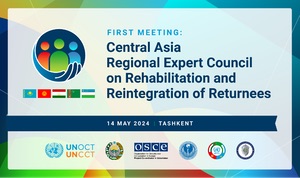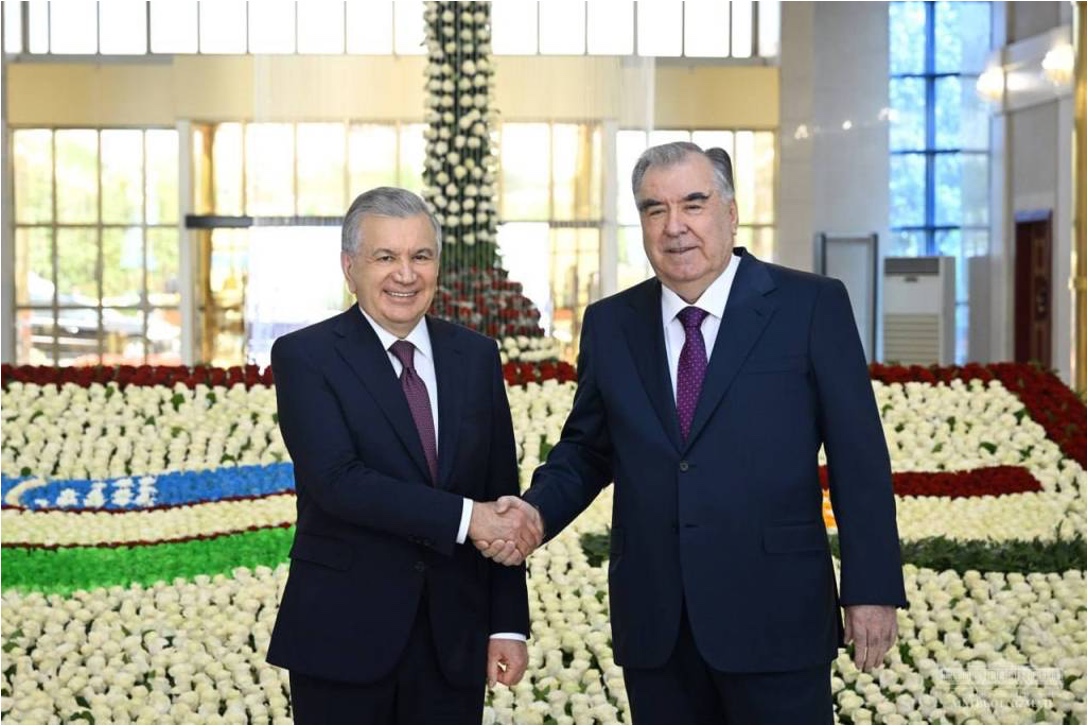Publications
Border readjustment in Tavush, what’s next?  By Yeghia TASHJIAN, Beirut-based regional analyst and researcher, columnist, "The Armenian Weekly”
By Yeghia TASHJIAN, Beirut-based regional analyst and researcher, columnist, "The Armenian Weekly”
On April 17, 2024, Armenia’s Prime Minister Nikol Pashinyan, at a meeting with the residents of Kirants village in the Tavush region, said that for the past 30 years, the residents have lived “in the conditions of lawlessness, and the time has come to put an end to this, to establish a rule of law” in the region. The PM added: “Our idea is for you not to say Azerbaijan is 50 meters away, but to say, wow, it is good that Azerbaijan is 50 meters away. We will trade there. We will build the economy there. Maybe we will build another checkpoint. Cars will come and go and pay the Republic of Armenia.” He later continued: “Now you can say to me: Do you 100-percent guarantee that you will do this? I will answer, I don’t guarantee 100-percent, but I know that by taking step by step, we will reach 90-percent or even more.” Azerbaijan insists that there are four bordering villages near Armenia’s Tavush and Azerbaijan’s Qazax region that must be ceded to Azerbaijan. Baku argues that these villages were taken by Armenian forces in the early 1990s.”
READ MORE
Publications
Tashkent will host the first meeting of Central Asia Regional Expert Council in Rehabilitation and Reintegration of Returnees  Tashkent/New York/Vienna, May 10, 2024.
Tashkent/New York/Vienna, May 10, 2024.
On May 14 this year, the first meeting of Central Asia Regional Expert Council in Rehabilitation and Reintegration of Returnees from armed conflict zones will be held in Tashkent.
The Regional Expert Council is being established on the initiative of the President of Uzbekistan, Mr. Shavkat Mirziyoyev, put forward in March 2022 in Tashkent at the high-level conference “Regional cooperation of the countries of Central Asia under the Joint Action Plan for the implementation UN Global Counter-Terrorism Strategy” and supported by international partners.
READ MORE
Publications
Uzbekistan-Tajikistan: commitment to deepening cooperation based on principles of good-neighborliness and mutual trust  President Shavkat Mirziyoyev will pay a state visit to Tajikistan on April 18-19 at the invitation of President Emomali Rahmon.
President Shavkat Mirziyoyev will pay a state visit to Tajikistan on April 18-19 at the invitation of President Emomali Rahmon.
As close neighbors whose peoples are historically and culturally inseparable from each other, Uzbekistan and Tajikistan have brought their relations to the level of strategic partnership and alliance.
The close and constructive political dialog established between the leaders of the two countries, supported by regular bilateral and multilateral meetings, plays a huge role in the development of mutually beneficial and fruitful cooperation.
READ MORE
Publications
Yerevan’s ‘Crossroads for Peace’ Remains Elusive  By Vasif HUSEYNOV, PhD, Head of Department, AIR Center, Adjunct Lecturer, ADA and Khazar Universities, Baku
By Vasif HUSEYNOV, PhD, Head of Department, AIR Center, Adjunct Lecturer, ADA and Khazar Universities, Baku
On April 5, European Commission President Ursula von der Leyen and US Secretary of State Antony Blinken expressed support for the “Crossroads for Peace” project of Armenian Prime Minister Nikol Pashinyan during a press conference before their meeting in Brussels. The project, which was presented to the public during the Armenian premier’s address at the Fourth Silk Road Forum in Tbilisi on October 26, 2023, envisions opening new transportation routes across Armenia with the hopes of transforming the country into a regional transit hub. The project calls for the opening of connections between Azerbaijan and Türkiye via Armenian territory and aims to incorporate these links into east-west trade along the Middle Corridor. Neither Baku nor Ankara, however, has been consulted or declared any support for the initiative. Thus, Pashinyan’s project remains “on paper,” and failure to work directly with the Azerbaijan and Turkish governments may mean the idea never comes to fruition.
READ MORE
Publications
Reflection on the “Friends of Armenia Network” white paper  By Yeghia TASHJIAN, Beirut-based regional analyst and researcher, columnist, "The Armenian Weekly”
By Yeghia TASHJIAN, Beirut-based regional analyst and researcher, columnist, "The Armenian Weekly”
On March 27, 2024, a high-level group named “Friends of Armenia Network” headed by the former Danish Prime Minister and NATO Secretary General Anders Fogh Rasmussen published a white paper aiming to “galvanize support for democratic Armenia and promote peace in South Caucasus.” The title of the paper is “Deepening EU-Armenia Relations: More Europe in Armenia; More Armenia in Europe,” and the authors include former prime ministers, European parliamentarians and diplomats.
“Armenia is pivoting to the West,” the paper argues, and the EU has a strategic and value-based interest in supporting this pivot. To succeed, both Yerevan and Brussels need to make a “substantial, long-term strategic commitment in terms of resources, security cooperation, trade relations, and political engagement.” To make this pivot “irreversible,” the EU must grant Armenia “EU candidate status,” which would match Yerevan’s strategic orientation, back up its geopolitical commitments and minimize the impact of Moscow’s reaction to Yerevan by increasing the latter’s resilience.
READ MORE
Publications
Central Asian countries and the Gulf Cooperation Council: synergy of potentials  Uzbekistan, and Tashkent in particular, is becoming the venue for an important international forum that should give a practical vector to a new format of interregional cooperation based on the traditions of centuries-old exchanges between the peoples of Central Asia and the Arab States of the Gulf and today's huge potential for mutually beneficial co-operation.
Uzbekistan, and Tashkent in particular, is becoming the venue for an important international forum that should give a practical vector to a new format of interregional cooperation based on the traditions of centuries-old exchanges between the peoples of Central Asia and the Arab States of the Gulf and today's huge potential for mutually beneficial co-operation.
The first ministerial meeting of the Gulf Cooperation Council-Central Asia Strategic Dialogue was held on 7 September 2022 in Riyadh, the capital of Saudi Arabia.
READ MORE
Publications
Uzbekistan will gather folklorists and expect tourists from all over the world in May  On 1-7 May, the ancient and unique land of Surkhandarya will host the traditional international “Boysun Bakhori” (Baysun Spring) folklore festival
On 1-7 May, the ancient and unique land of Surkhandarya will host the traditional international “Boysun Bakhori” (Baysun Spring) folklore festival
Preparations for the festival, which will unite bearers, performers and masters of folklore and ethnographic art from all over the world, are being carried out in a completely new spirit. In the modern tourist complex in Bibishirin mahalla, where its main events will take place, all conditions are being created for performances of folklore and ethnographic groups, national sports games and other various performances.
READ MORE